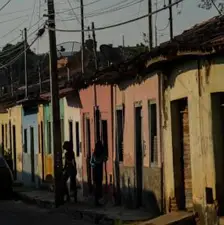Brazil’s lawmakers have voted to exempt monthly incomes up to 5,000 reais (about US$940) from taxation, aiming to relieve financial pressure on low earners. This shift in fiscal policy could significantly affect the take-home pay of millions of workers across the country.
Brazil’s lower house approves an increase in tax exemptions for low-income people

Key Takeaways:
- Brazil’s lower house voted to raise the monthly tax exemption to 5,000 reais.
- Low-income individuals will be the primary beneficiaries of this measure.
- The exemption figure amounts to roughly US$940 in monthly income.
- Legislators intend to keep more money in workers’ pockets.
- The move reflects a broader push to address income inequality in the country.
Legislative Green Light
Brazil’s lower house has taken a significant step by approving a measure that exempts monthly incomes up to 5,000 reais from taxation. This milestone legislation, which translates to roughly US$940, primarily targets low-income individuals, aiming to reduce financial burdens and help more Brazilians hold onto their hard-earned wages.
Why the 5,000 Reais Threshold Matters
By setting the exemption level at 5,000 reais per month, Brazil’s lawmakers seek to elevate the take-home pay of millions. In a country where many workers hover around this income bracket, the newly approved threshold could provide immediate relief to those most in need.
A Focus on Low-Income Relief
Supporters of the legislation emphasize that this adjustment will have the greatest impact on people struggling to cover everyday expenses. In Rio de Janeiro and beyond, the policy shift is seen as a direct response to the economic challenges many Brazilians continue to face.
Potential Financial Impact
Any tax policy change can shape citizens’ day-to-day lives. With an extra allowance in their monthly budgets, low-income workers may find it easier to afford essentials such as housing, food, and education. This increased disposable income could also stimulate local markets, although the full effects remain to be seen.
Outlook and Further Steps
While the legislation has cleared the lower house, further developments may be required before it fully takes effect. Observers expect continued discussions on how best to implement the measure, but its approval already signals a national shift to address income-related concerns. For Brazil’s low-income earners, it marks a significant stride toward keeping more of their wages in their own pockets.











